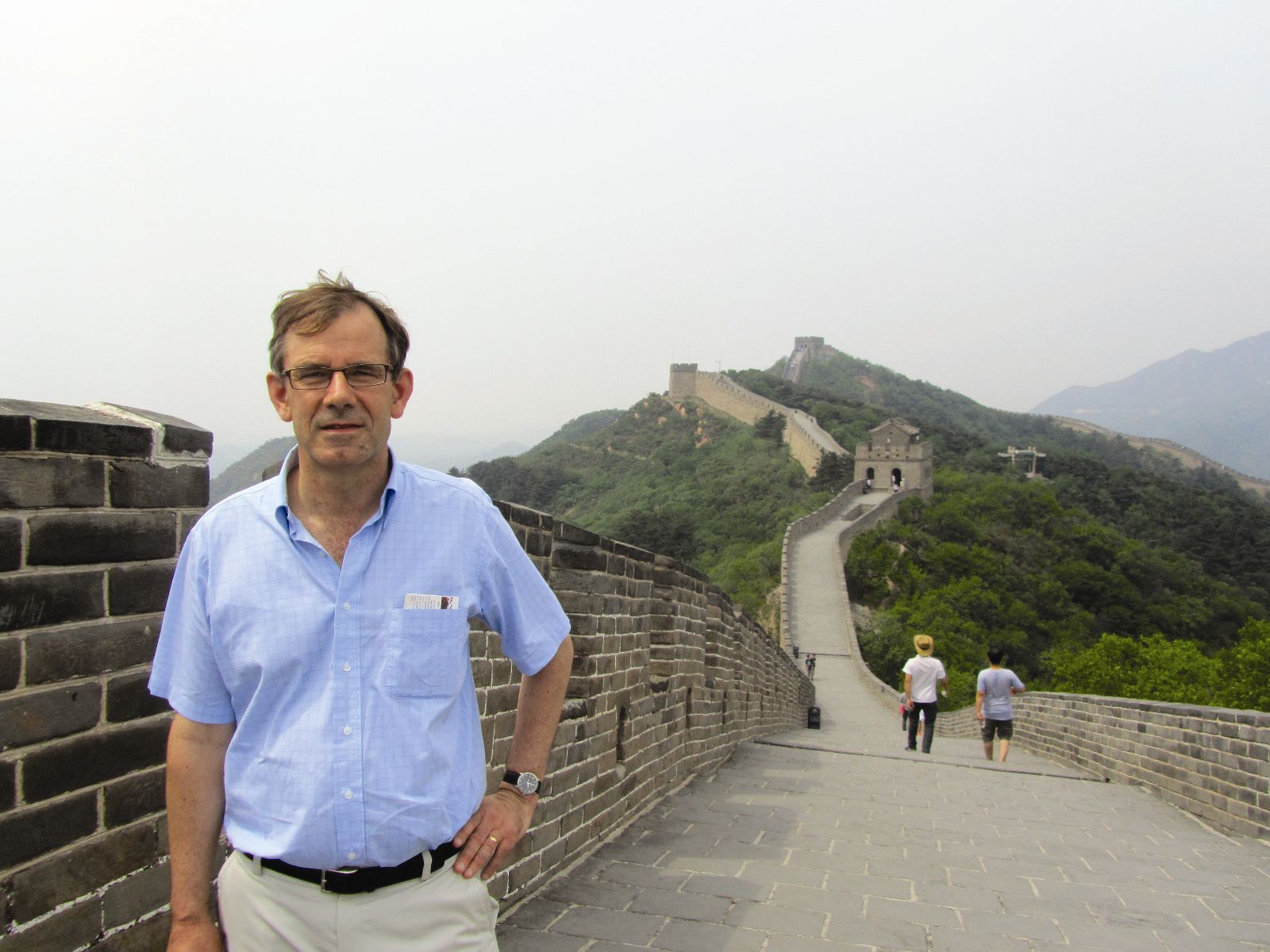Crich influences students worldwide
 In a prestigious career that's taken him around the world, Schaap Professor of Organic Chemistry David Crich seems to have found his home at Wayne State University.
In a prestigious career that's taken him around the world, Schaap Professor of Organic Chemistry David Crich seems to have found his home at Wayne State University.
Born and raised in Chesterfield, England, Crich came to WSU in 2007 after 17 years at the University of Illinois at Chicago (UIC), where he rose to the rank of liberal arts and sciences distinguished professor of organic chemistry. Before that, he spent five years as a lecturer in the Christopher Ingold laboratories at University College London.
In the course of his career, Crich has graduated some 60 Ph.D. candidates from his lab perhaps none more memorable than the 10 students he brought with him to Wayne State from UIC in 2007. The 12-person group plus their children, spouses and significant others formed a caravan of chemists on the road from Chicago to Detroit, with Crich leading the way in a U-Haul truck packed with his students' belongings and lab equipment.
In 2009, Crich was offered the position of director of the Institut de Chimie de Substances Naturalles (ICSN) in Gif sur Yvette, France the same laboratory where he conducted his undergraduate, graduate and postdoctoral research from 1979-85. Unable to pass up the opportunity, Crich moved his family overseas. But this time, his team of nomadic Ph.D. students couldn't make the journey. The research group stayed intact at WSU, and through countless video conferences, phone conversations and visits, Crich continued to lead the group from France, ultimately graduating all 10 students - two of whom have recently been appointed to faculty positions themselves.
After only two years at ICSN, Crich decided to return to Wayne State. "I wanted to come back here, and I owed it to WSU and Paul and Carol Schaap to finish what I set out to do," Crich says.
At WSU, Crich has established a laboratory of 14 graduate students and postdoctoral fellows with more on the way. He also teaches a variety of chemistry courses, conducts cutting-edge research and secures grant funding to support it. He's renowned for his NIH-supported work in carbohydrate chemistry and reactivity, which enables complex oligosaccharide synthesis for drug design applications. His research has brought him many of accolades over the years, most recently a Cope Scholar Award from the American Chemical Society and the prestigious Haworth Memorial Medal of the Royal Society of Chemistry in the United Kingdom.
"I've never had a 'real' job," Crich says. "I've always been a faculty member and a researcher, and I consider myself very lucky in that respect. It's great fun."
At the moment, a major focus of the Crich lab is a collaboration with the University of Zrich (UZH). Working with colleagues Erik Bttger and Andrea Vasella, Crich and his team are trying to develop new, less-toxic antibiotics to target drug-resistant bacteria. Their research focuses on aminoglycosides large molecules that are among the earliest and most widely used antibiotics and reducing their propensity to cause ototoxicity, or hearing loss.
Crich explains that as many as 20 percent of patients who take a sustained course of aminoglycosides suffer some degree of permanent hearing loss. Bttger and Vasella determined that this amino-induced ototoxicity arises through the binding of the drug to human mitochondrial ribosomal RNA. Crich and his team design and synthesize modified aminoglycosides to reduce and eliminate this side effect.
"We have a variety of tests that allow us to screen for binding to mitochondrial and bacterial ribosomes, so we're able to optimize our compounds on that basis," Crich says.
Because this research deals with large, carbohydrate-like molecules, Crich's expertise is crucial. The project also gives his students unparalleled training in organic chemistry and the opportunity to pioneer new discoveries in the field. It's a passion for these discoveries that's kept Crich in the same profession for more than 30 years.
"We should always be looking for new ways to do things and be on the lookout for the unexpected," he says. "I sit and plan synthetic schemes, and when they work, it's good. But for me, the most exciting thing is when what I planned goes wrong."
Crich's career has taken him across states, countries, continents and back again. But his dedication to the field and his students has remained constant.
"I came from a working-class background," he says. "A lot of people helped me along the way, so I'm always happy when I can do that for others."